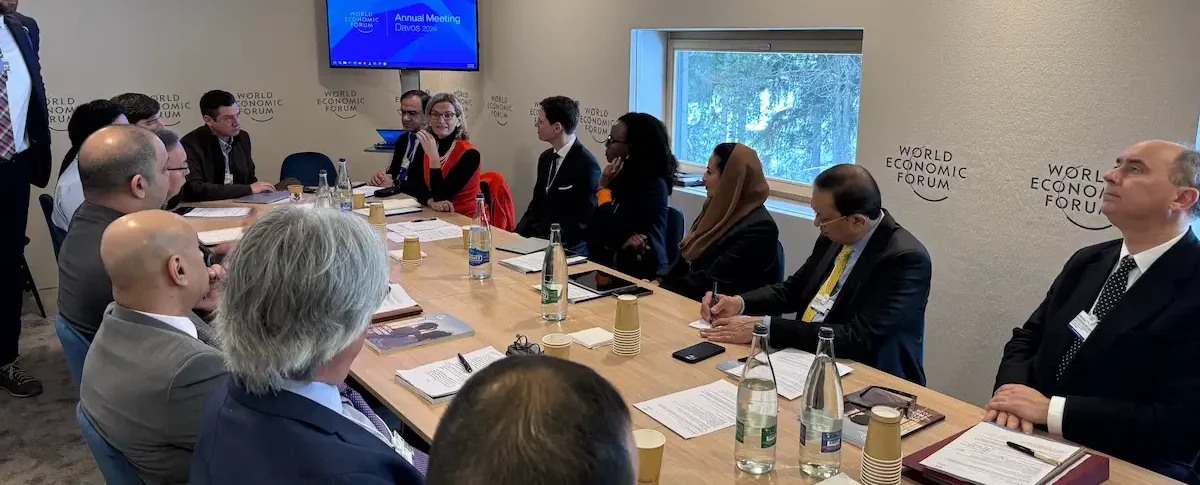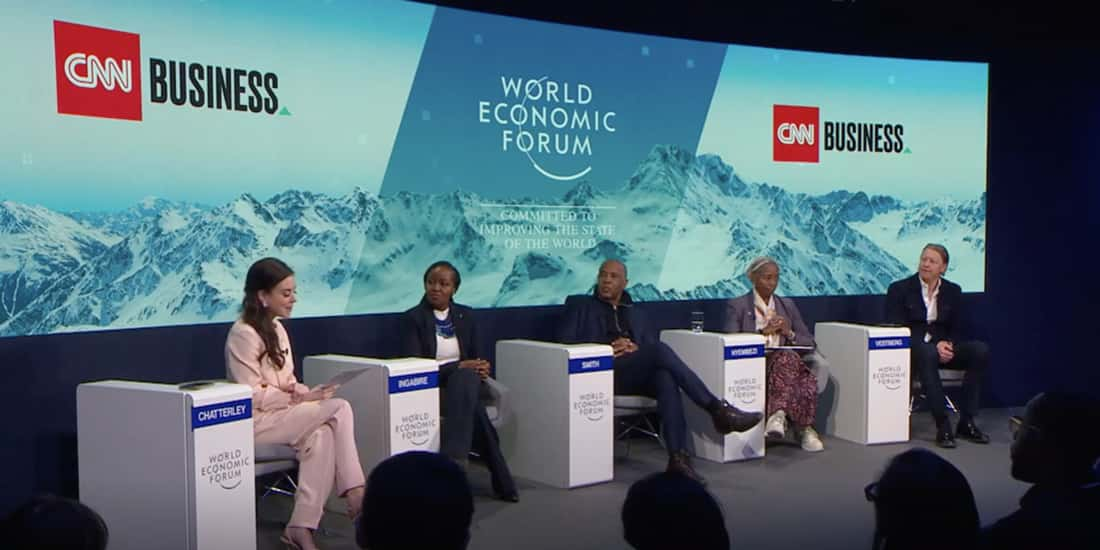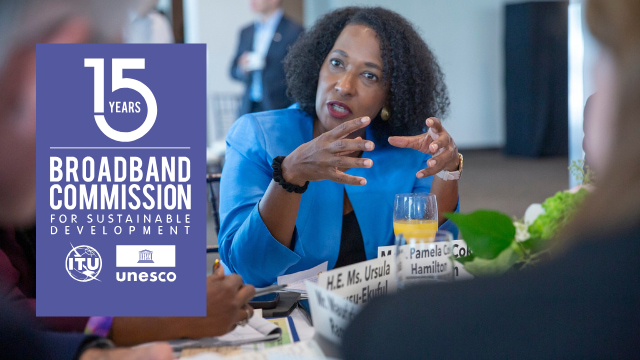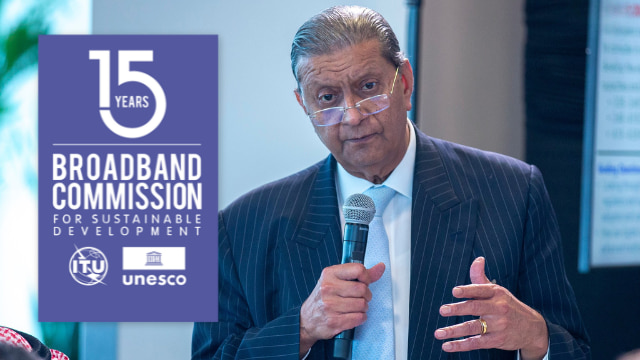
The 54th Annual Meeting of the World Economic Forum held in Davos, Switzerland between 15-19 January set out to address the need for rebuilding trust in an increasingly uncertain world characterized by deep structural shifts, ranging from geoeconomics to climate change to artificial intelligence. The meeting focused on rebuilding trust at three levels: into the future, within societies, and among nations, emphasizing the crucial principles of transparency, consistency, and accountability.
The annual event serves as a platform for open dialogue, bringing together leaders from governments, businesses, civil societies and other stakeholders, with the aim to develop agile policy frameworks and effective technological solutions.
The 2024 Programme focused on four interconnected thematic priorities:
- Achieving Security and Cooperation in a Fractured World
- Creating Growth and Jobs for a New Era
- Artificial Intelligence as a Driving Force for the Economy and Society
- A Long-Term Strategy for Climate, Nature, and Energy
Many Broadband Commissioners attended the event this year to bring the issues of digital inclusion, new technologies as a driving force for the economy and society and universal connectivity center stage. Covering topics from, the future of AI, e-government services, space connectivity and more, they presented insightful discussions and shared innovative strategies aimed at closing the digital divide and promoting equal access to the internet as a means of advancing the UN Sustainable Development Goals.

At the TIME100 Roundtable, Commissioners and global leaders convened to highlight the urgency of bridging the connectivity gap. Broadband Commissioner and UNDP Administrator Achim Steiner added to the conversation, “digital exclusion is the most dangerous phenomenon alongside climate change of our time because if you don’t address it, you will lock countries, communities, people, societies into an abysmal prospect for inequality and exclusion.”

Later, at a closed session hosted by the Digital Cooperation Organization (DCO), Broadband Commission Co-Vice Chair and ITU Secretary-General, Doreen Bogdan-Martin emphasized that industry and governments must collaborate to put high-performing digital infrastructure in place, adding that they must follow through by making sure that connectivity is meaningful.
The ITU refers to the meaningful connectivity as “a level of connectivity that allows users to have a safe, satisfying, enriching and productive online experience at an affordable cost.”

At the Thinking Big on Digital Inclusion session, H.E. Paula Ingabire, Minister of ICT and Innovation for Rwanda and Commissioner Hans Vestberg, CEO of Verizon, took the stage, highlighting the urgency of collaborative efforts among governments, private sectors, and civil societies to ensure that broadband and digital services are accessible, affordable, and reliable for all. Minister Ingabire challenged the traditional role of governments saying, “When we box ourselves in policies and regulations alone, we thwart the speed of progress.” She explained that governments can play a part in advancing digital literacy, handset affordability, localized services and broadband infrastructure, adding that change can be accelerated when policymakers have some “skin in the game.”
“You’ll never find a one-size-fits-all solution to the challenge of digital inclusion”
During the Conference, the EDISON Alliance, a global coalition of leaders from the private sector, governments, academia and civil society, released its second Annual Impact Report. “No matter where you were born or where you live, everybody should have access to the digital services that are necessary to fully participate in 21st-century society,” said Hans Vestberg, Broadband Commissioner, Founder Chief Executive Officer of Verizon and EDISON Alliance Founding Member. Several Commissioners are members of the EDISON Alliance, which has calculated to have improved the lives of 784 million people through 320 initiatives across 127 countries since its inception in 2021.

This year’s event highlighted the inseparable link between progress in sustainable development and increased access to meaningful broadband connectivity.
As we move ahead in the year, Broadband Commissioners and global leaders will continue to bring universal meaningful connectivity to the forefront of global policy discussions and reinforce the need for multistakeholder collaboration. With unified efforts and a shared vision, the potential to bridge digital divides and foster a more connected global community is within reach.
Attending Broadband Commission leaders and members included: H.E. President Paul Kagame of Rwanda, H.E. Ms Paula Ingabire, Ms Doreen Bogdan-Martin, H.E. Dr Amani Abou-Zeid, Mr Achim Steiner, Mr Filippo Grandi, Mr Makhtar Diop, Dr Tedros Ghebreyesus, Mr Hans Vestberg, Mr Mats Granryd and Dr Ann Aerts. Note: This list is not an exhaustive list.
Selected events where Commissioners were featured:
- Software.gov
- An African Economy of Scale
- On the Frontlines for Nature
- 3m Refugees at a Critical Junction
- The Humanitarian System under Pressure
- AI: The Great Equaliser?
- Addressing the North-South Schism
- Preparing for Disease X
- Climate and Nature: Seed Capital Needed
- Taming Competition in Low and High Orbit
- Thinking Big on Digital Inclusion
- Press Conference: New Private Sector Plan to Boost African Trade
- Global Risks: What’s in the Mail?
Check out relevant resources:




